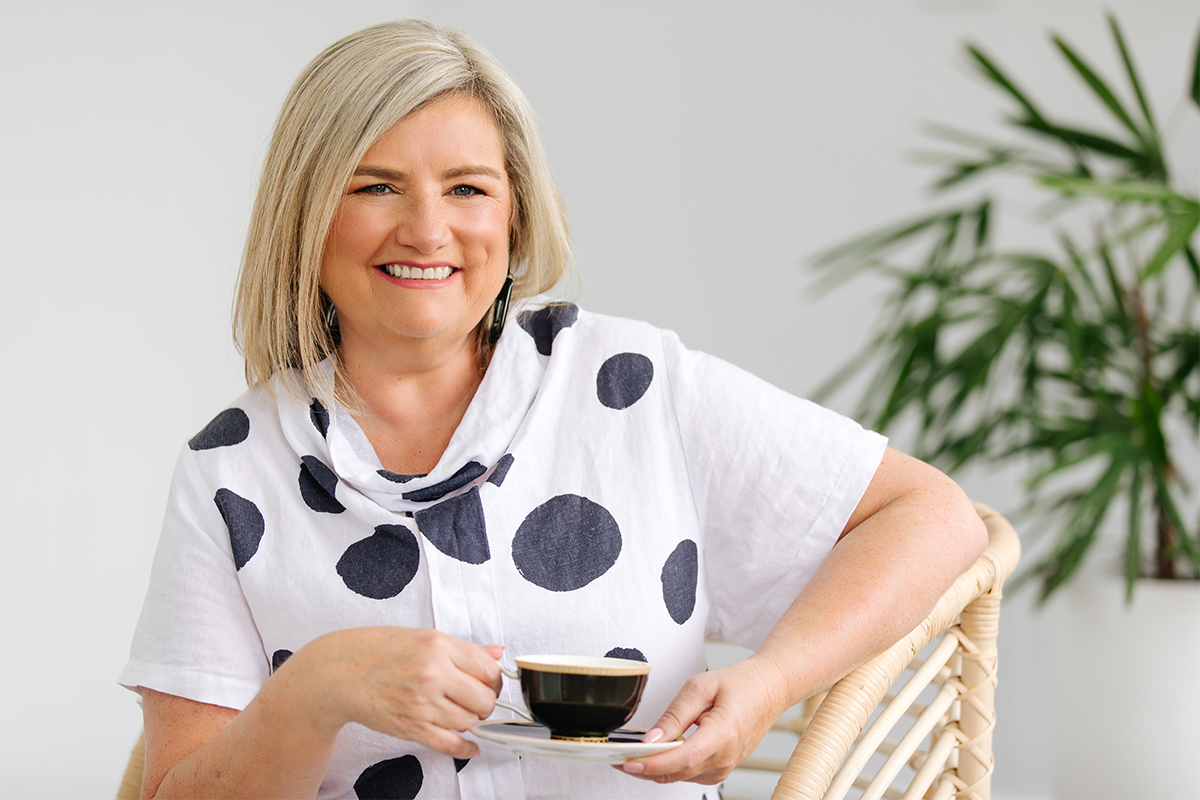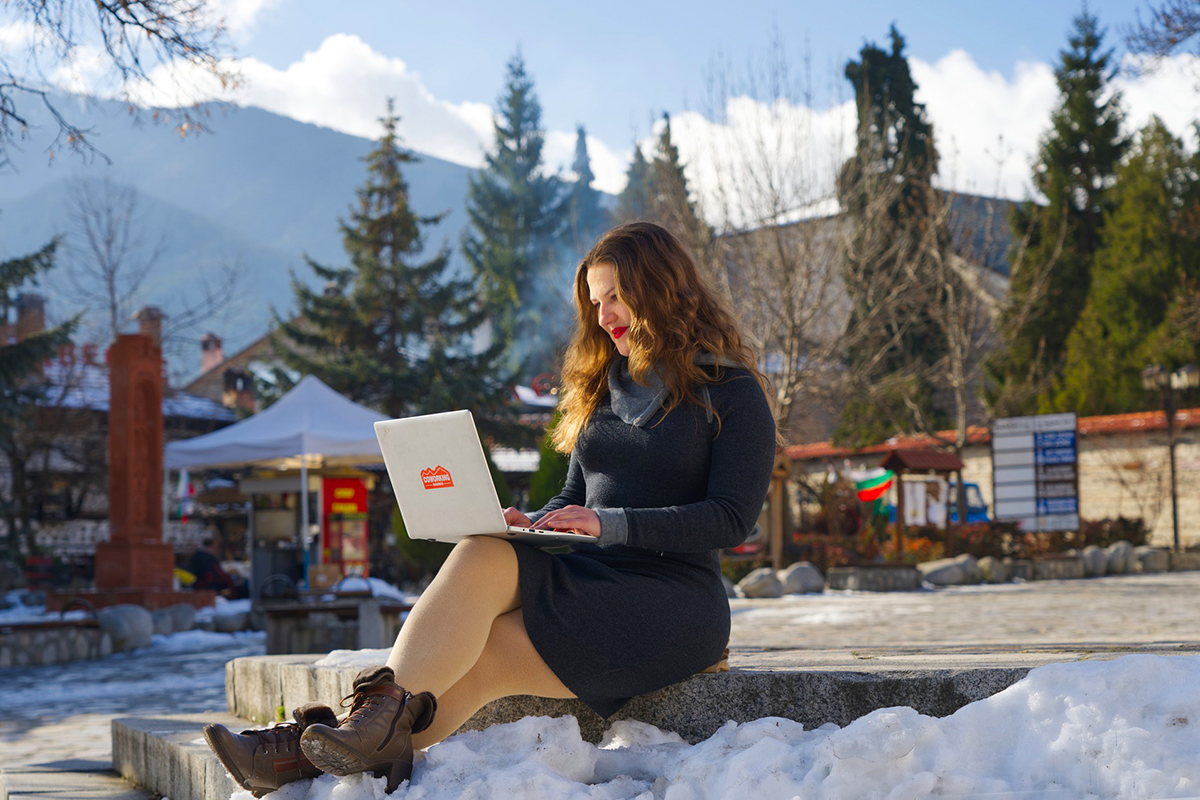Many of us live in cultures where being busy and working hard 100 per cent of the time are rewarded, giving us the reassurance that we are making good use of our time in exchange for money or success.
Feeling energised and radiant are somehow indicators that we didn’t put in enough effort, or perhaps shame rears its ugly head when you pause for a moment to stare out the window of your workplace or take a break to socialise with a colleague.
However, it’s important to recognise that ‘rest resistance’ is preventing us from performing at our best, according to Australian productivity expert and author Donna McGeorge.
In her latest book The 1 Day Refund, Take Back Time, Spend it Wisely, McGeorge’s research has unveiled that Australians typically work 3.2 billion hours of overtime in a year and 3.8 million workers don’t take lunch breaks.
Failing to dedicate adequate time to think as a result of the ‘urgency epidemic’ we’re currently facing is particularly problematic within a corporate context in which many people are essentially hired as knowledge workers.
For McGeorge, giving people the space to think and breathe in their work, as opposed to constantly being productive, is important in delivering greater impact and value for businesses. She encourages companies to rethink the industrial notion of trading time in exchange for money and replacing this with the energy, value and impact you can instead bring to the table.
“Taking time out to stop and do nothing allows space for our brains to wind back and access the parts that boost creativity,” she explains. “When we give ourselves the time to go beyond the obvious, we are able to access more creative, breakthrough, inventive and, dare I say, life-changing ideas.”
“We need to find ways to compress time, batch our work and create a good chunk of time (at least 90 minutes per day) as our refund.” – Donna McGeorge
Indeed, one of the downsides of being constantly busy is that we’re less likely to respond positively to a problem that arises or remain calm under pressure. The pandemic required us to deal with a novel situation and those with ‘adaptive capacity’ were able to successfully navigate the changes, and arguably had the energy and time to make worthwhile decisions.
“They had the space, they had the resources and the smarts to be able to stop, look at the situation and make some really good decisions that in fact enabled them to take advantage of changes rather than feeling like they constantly had to react,” McGeorge affirms.
While working from home grants workers more flexibility and time that would normally be spent on commuting, it has also blurred the boundary between work and leisure.
“Instead of recognising the time refund as a gift, we simply absorbed it back into our busy, out-of-control, overwhelmed lives,” McGeorge points out. “This meant many of us were more exhausted than when we commuted.”
Instead, the 10 hours a week that were spent on commuting could have been refunded back in the form of an extra day every week.
During the 20-plus years that McGeorge has worked with managers from companies including Flight Centre, Ford Motor Company, L’Oréal and Nissan, she has noticed that many of her clients feel overwhelmed and exhausted at the end of their day or week.
A large part of this has to do with allowing everything to be the boss of you and failing to have solid boundaries that are aligned with your own definition of balance.
She reminds us that we are designed for exertion and rest, which is why we spend a third of our day unconscious, as our bodies signal that it’s time to recharge. “If we’re not doing that then we’re actually not showing up as our best selves,” she says.
McGeorge’s simple rules to better manage your time

Whether you’re a manager with more than 30 years’ experience or a fresh graduate taking on your first role, these tips encourage you to consider what you can strip back rather than add to your existing to-do list.
“Figuring out what you are not going to do, or what you can take away, is the key to finding more space to think,” McGeorge asserts.
Operate at 85 per cent capacity
Imagine carrying a cup of tea – there’s a strong likelihood that it will spill if it’s completely full with liquid.
This metaphor can be applied to our working lives, where operating at 100 per cent capacity throughout our days is not sustainable, nor does it provide us with a buffer for interruptions and other events that occur beyond our control.
“So if we’re saying to people, ‘We only want your calendars to be 85 per cent full,’ then we’ve got space to do our better thinking work,” McGeorge says. “That’s what I think allowing people to be truly strategic is all about.”
Stick to your boundaries
Establishing work-related boundaries requires a level of discipline and clarity around how much you are willing to give to your career and dedicate to non-work-related activities.
It also helps you to navigate your relationships with managers, colleagues and clients. “Healthy boundaries can mean the difference between career and work fulfillment and burnout,” McGeorge explains.
However, they only work if you stick to them and trust that others are reasonable in their expectations from you.
Create contextual markers
Another type of boundary is creating a clear distinction between leisure and work for those of us who work remotely. Whether it’s taking off your jewellery at the end of your workday or going for a short walk before you begin your day, such rituals help us to create a healthy work–life balance.
“Without the contextual markers of our morning and afternoon commute, the official start and end of the working day have become blurred,” McGeorge shares.
By having a designated workspace at home, we are reminded each day that this space is for focusing our attention and minimising distractions while we work.
Organise your to-do list
Structuring your day in accordance with your body clock can be helpful. However, when it comes to preventing overwhelm, it may be even more useful to separate items on your to-do list in terms of the tasks you’re currently working on from the things that you’ve already completed and everything that needs to be done.
“We need to find ways to compress time, batch our work and create a good chunk of time (at least 90 minutes per day) as our refund,” McGeorge advises.
Empty your mind every morning
A simple yet powerful daily practice to declutter your mind and prevent overwhelm is to dedicate some time each morning to writing all your thoughts and the things that require your attention on paper. In doing so, you’re releasing the weight of these demands from your mind and can approach the day with a clean slate.
“The first couple of times you do this it will go for pages, but eventually you’ll get to the point where there’s nothing else there,” McGeorge says.
Refrain from multitasking
While it may be very tempting to work on several tasks at once, what we’re actually doing is switching back and forth between various activities, which is not the most effective approach.
“Multitaskers reduce their productivity by 40 per cent across the board,” McGeorge points out. “They take 50 per cent longer to accomplish a particular task, and errors increase by 50 per cent.”
The next time you’re on the train and feel the need to fill this time with something distracting, you may want to indulge in the luxury of daydreaming or simply gazing outside the window.
“There’s been heaps of studies shown to support daydreaming as a way of subsequently being more productive when you do go back to work,” McGeorge says.
Read Next: Sleeping habits and routines of highly successful people







